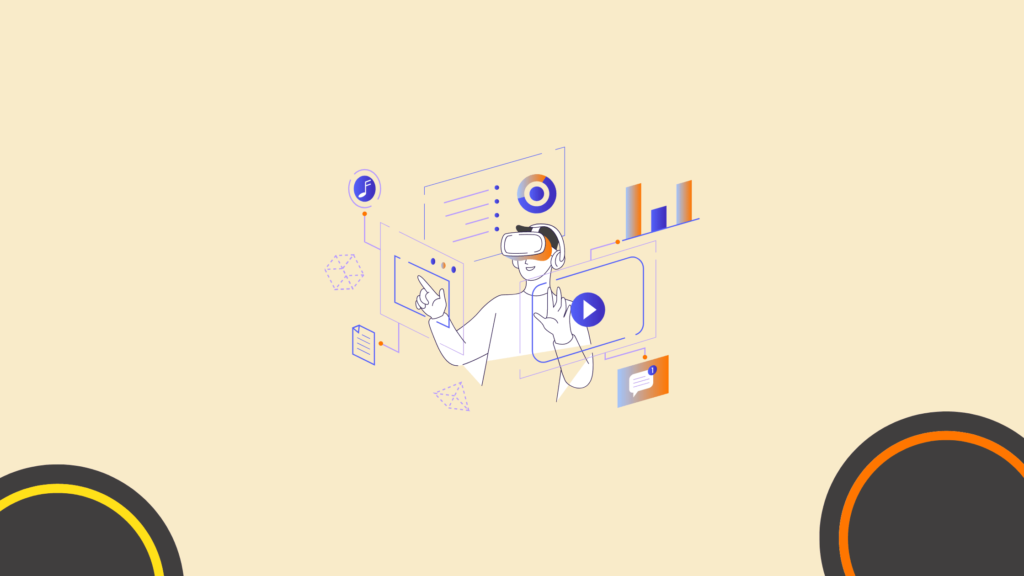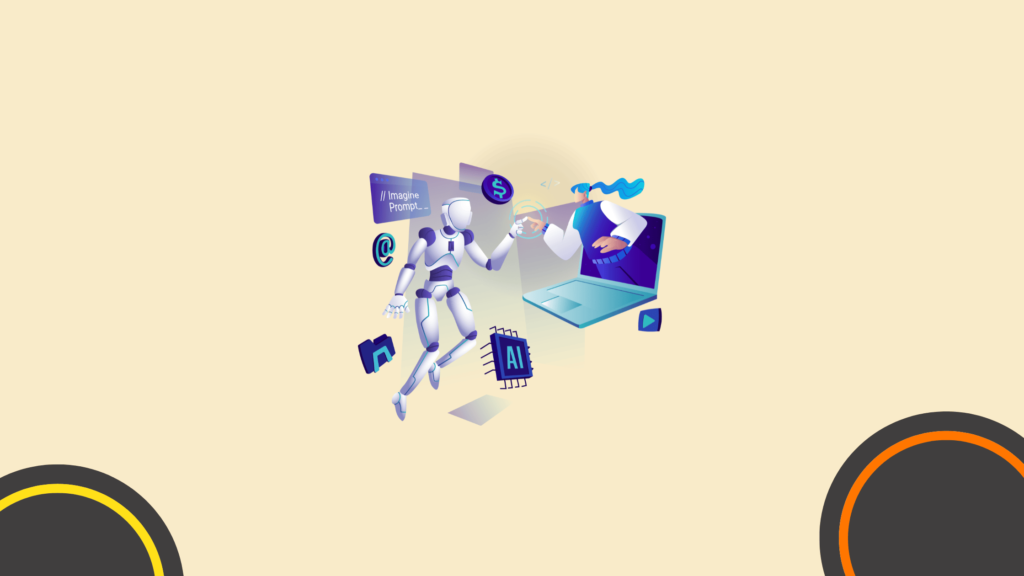Why Use AI Tools in Daily Life and At Work
Artificial intelligence technologies have brought several benefits to our daily lives.
In companies and outside the corporate environment, people can integrate AI solutions to automate processes and perform activities with simplicity.
Among the main benefits, I can highlight the following.
Chapters
1. Increase in automation

Artificial intelligence contributes to the increased automation of different tasks. Driving cars, delivering products, sorting items, and predicting trends will be performed with a higher degree of accuracy. Thus, companies can maintain quality services regardless of their sector of activity.
2. Reduction of operating costs
By reducing errors and increasing productivity, companies adopting artificial intelligence can quickly eliminate operational costs.
For example, HR teams deal with large amounts of documents daily, particularly when hiring new employees. With the support of AI, the organization can automate some processes, such as identity verification, by comparing the identification document with a real-time image of the person.
3. More convenience
The possibility of making our daily lives more practical. This is the case, for example, with assistants like Siri and Google Now. They can, for example, integrate with our calendar to indicate the best time to go to an appointment in our favorite means of transport, preventing the user from being late for an appointment or a meeting.
What are the Advantages of artificial intelligence for companies

Artificial intelligence has numerous applications and advantages for everyday life and, above all, for companies. Understand the primary uses of this technology and the benefits it provides.
1. Supports the evaluation of indicators and decision-making
Through data analysis and fast and accurate information processing, artificial intelligence is used to evaluate performance indicators and generate performance reports. These resources are essential to understand the progress of the business, see corrections and improvement points, and obtain insights.
Being able to correctly calculate metrics, such as Return on Investment (ROI), is helpful to get a concrete idea of the reality of the business. With other indices, managers can carry out a complete mapping of the company and have an accurate perception of the performance of each area and where adjustments need to be made.
Likewise, AI-supported deep analytics help identify errors and fraud and prevent risks such as credit ratings.
2. Optimize and automate processes
Process automation is one of the main benefits of applying artificial intelligence in companies. Repetitive and bureaucratic tasks can be easily computerized and performed by intelligent systems.
Some examples of activities that can be automated through AI systems are:
- Automatic issuance of tax documents;
- Validation of documents in HR;
- Stock management;
3. Maintenance schedule monitoring
Artificial intelligence combined with robotics can leverage the manufacturing sector by automating operations and the potential for machine management.
Using technologies such as telemetry, cameras, and sensors, an AI system can monitor the other machines, following the progress of processes and pointing out errors and bottlenecks.
4. Boosts marketing campaigns
Marketing is one of the sectors that gain the most from introducing artificial intelligence. That’s because most strategies and campaigns are designed based on data. With the support of AI tools and data analysis, managers map trends and information about the target audience more efficiently and comprehensively.
This mapping will generate knowledge about consumer behavior, needs, and pain. It will also point out market trends and opportunities, allowing the company to assume a proactive stance and anticipate demands.
Evaluating consumer behavior is one of the pillars of successful marketing campaigns today. This study makes it possible to deeply understand customer profiles, learn more about their habits, and efficiently segment them to target content and promotions.
All this effort certainly increases the chances of a customer closing a purchase, as AI helps deliver the content of value and relevance to each subject, thanks to the levels of personalization that the machines can achieve.
Remember that companies like Spotify and Netflix use artificial intelligence-based recommendation algorithms to improve how content is presented to each user.
5. Improves customer service
Chatbots — AI service bots — are widely used by several companies to optimize customer service. Based on Machine Learning, these robots can improve their service and how they interact with the customer over time, improving their responses.
If necessary, the service can be forwarded to a human attendant. However, chatbots can handle a high volume of calls at high speed and reduce critical cases, preventing countless users from being dissatisfied with the lack of responses and delays.
Thus, despite limitations, its application is valid to solve simple doubts or confirm customer information.
What are some examples of artificial intelligence applied to business?

As artificial intelligence consolidates and becomes more and more advanced, several new tools emerge to optimize processes and cause disruption in a series of segments. Below, you will learn about some of the main applications of AI in companies today.
Recommendation of content and products across platforms
Those who use e-commerce have certainly come across a recommendation for other similar or complementary products when closing a purchase. This recommendation system is generated by artificial intelligence, which maps user behavior and habits and generates personalized recommendations.
The same strategy can be applied to other platforms like video and music streams. Websites like Netflix and Spotify use artificial intelligence to generate personalized content and provide a more relevant experience for their users.
1. Canva’s Summarizer
Canva offers a free feature such as an AI summarizer that plays a pivotal role in distilling lengthy content into concise summaries. Just as e-commerce platforms employ AI to recommend products, Canva’s Summarizer uses AI to enhance document summarization, making it a valuable asset in both personal and professional settings.
By automating the process of content condensation, this tool not only saves time but also contributes to improved productivity and effective information management. This AI-driven enhancement aligns with the broader trend of using artificial intelligence to streamline tasks, boost user experiences, and drive innovation across various domains.
2. Chatbots
Chatbots are an artificial intelligence system that uses data to mimic human language and more spontaneously establish conversations with people. This technology is highly used in customer service, especially in the first stages of support or to solve less complex problems such as querying information, registering, etc.
When fed with data, the chatbot tool improves communication, improving the customer experience and streamlining service. With this, reducing the volume of calls and serving more people in less time is possible.
3. Personal assistants
Alexa, Siri, and other tools are artificial intelligence solutions that help people and professionals in their daily activities. They can make appointments, search for content, assemble lists, generate reminders, and much more through voice commands.
In companies, these resources can be used to streamline processes and improve the user experience, when applied to virtual assistance.
4. ChatGPT
ChatGPT, a language model created by OpenAI, caused significant disruption when launched at the end of 2022. It proposes establishing an autonomous dialogue with the user when directed, generating content naturally. ChatGPT can translate content, summarize, and generate articles and texts according to the prompts provided by the user.
ChatGPT has been used in companies to create different content since it can deliver texts in very natural language in seconds.
While ChatGPT has limitations, this linguistic programming technology appears to be here to stay. Several companies, including Google, are already working on their language model versions and are dedicated to improving and filling gaps in ChatGPT.
What is the importance of implementing artificial intelligence as a competitive advantage for business?

The use of AI systems in companies contributes to increasing efficiency and performance. Bureaucratic and repetitive tasks can be automated, leaving employees free to focus on more creative activities focused on the core business. This encourages innovation.
Thus, the tendency is for corporate structures to be formed by chains of fluid and lean processes, with fewer errors and inconsistencies and more visibility and transparency. As a result, it is possible to direct the team’s and company’s energy and efforts to strategic matters, planning, and growth.
Thus, AI increases the company’s competitiveness in the market, considering it a tool that optimizes production and brings grounded knowledge to the business.
FAQ
What are AI tools, and how do they work?
AI tools are software applications powered by artificial intelligence (AI) algorithms that perform tasks typically requiring human intelligence. They work by processing large amounts of data, learning patterns and trends, and making predictions or recommendations based on the analyzed information.
What are some common applications of AI tools?
Common applications of AI tools include natural language processing (NLP) for text analysis and sentiment analysis, machine learning algorithms for predictive analytics and recommendation systems, computer vision for image recognition and object detection, and virtual assistants for voice-activated interactions.
How can AI tools enhance productivity in business operations?
AI tools can enhance productivity in business operations by automating repetitive tasks, analyzing data to uncover insights and trends faster than manual methods, and assisting employees with decision-making through predictive analytics and personalized recommendations.
What role do AI tools play in customer service and support?
AI tools play a crucial role in customer service and support by providing chatbots for instant responses to customer inquiries, automating ticket routing and triage, analyzing customer feedback and sentiment, and personalizing interactions based on individual preferences and behavior.
How do AI tools contribute to improving healthcare outcomes?
AI tools contribute to improving healthcare outcomes by analyzing medical data to assist with diagnosis and treatment planning, predicting patient outcomes and disease progression, optimizing hospital workflows and resource allocation, and enabling remote patient monitoring and telemedicine.
What are some examples of AI tools used in marketing and advertising?
Examples of AI tools used in marketing and advertising include predictive analytics platforms for forecasting consumer behavior, content recommendation engines for personalized marketing campaigns, image recognition software for targeted advertising, and chatbots for customer engagement and lead generation.
How can AI tools help with cybersecurity and threat detection?
AI tools help with cybersecurity and threat detection by analyzing network traffic for anomalies and potential security breaches, identifying patterns indicative of malicious activity, and automating responses to mitigate risks and vulnerabilities in real-time.
What role do AI tools play in financial services and investment management?
AI tools play a significant role in financial services and investment management by automating trading decisions based on market trends and algorithms, analyzing financial data for fraud detection and risk assessment, and providing personalized financial advice and portfolio management services.
How do AI tools contribute to improving education and learning outcomes?
AI tools contribute to improving education and learning outcomes by personalizing learning experiences through adaptive learning platforms, providing virtual tutoring and mentorship, automating grading and assessment tasks, and analyzing student data to identify areas for improvement and intervention.
What are some considerations to keep in mind when selecting and implementing AI tools for business?
When selecting and implementing AI tools for business, it’s essential to consider factors such as the specific use case and business objectives, the scalability and interoperability of the tool with existing systems, the level of customization and support available, and the ethical and privacy implications of using AI technologies.
How do AI tools assist in streamlining recruitment processes?
AI tools streamline recruitment processes by automating resume screening, identifying top candidates based on predefined criteria, scheduling interviews, and analyzing candidate data to predict job fit and performance.
What role do AI tools play in enhancing e-commerce experiences?
AI tools enhance e-commerce experiences by providing personalized product recommendations, optimizing pricing strategies, automating customer service through chatbots, and analyzing customer behavior to improve marketing campaigns and conversions.
How can AI tools support content creators and marketers?
AI tools support content creators and marketers by generating content ideas, optimizing content for search engines, automating social media scheduling, analyzing performance metrics, and identifying trends to inform content strategy.
What are some examples of AI tools used in supply chain management?
Examples of AI tools used in supply chain management include demand forecasting models, inventory optimization algorithms, route optimization software for logistics, and predictive maintenance systems for equipment.
How do AI tools contribute to personalized healthcare solutions?
AI tools contribute to personalized healthcare solutions by analyzing patient data to tailor treatment plans, predicting disease risk factors, assisting with medical image analysis, and monitoring patient vitals for early detection of health issues.
What role do AI tools play in improving language translation and communication?
AI tools improve language translation and communication by providing real-time translation services, transcribing audio and video content, and assisting with language learning through interactive exercises and feedback.
How can AI tools assist in environmental sustainability efforts?
AI tools assist in environmental sustainability efforts by optimizing energy usage in buildings, analyzing data to identify opportunities for waste reduction and recycling, and monitoring environmental factors to predict and mitigate natural disasters.
What are some examples of AI tools used in autonomous vehicles?
Examples of AI tools used in autonomous vehicles include computer vision systems for object detection and recognition, sensor fusion algorithms for real-time decision-making, and machine learning models for route optimization and navigation.
How do AI tools support fraud detection and prevention in financial transactions?
AI tools support fraud detection and prevention in financial transactions by analyzing transactional data for anomalies and patterns indicative of fraudulent activity, flagging suspicious transactions for further investigation, and adapting to evolving fraud tactics through continuous learning.
What considerations should businesses keep in mind when integrating AI tools into their operations?
Businesses should consider factors such as data privacy and security, ethical implications of AI use, potential bias in algorithms, the need for employee training and upskilling, regulatory compliance, and the long-term scalability and ROI of AI implementations.
Conclusion
In conclusion, the integration of artificial intelligence (AI) tools into daily life and business processes is ushering in a new era of efficiency and innovation. AI’s far-reaching impact includes increased task automation, cost reduction through error mitigation and improved productivity, enhanced convenience with personal AI assistants, data-driven decision-making, process optimization, precise maintenance monitoring, elevated marketing campaigns, improved customer service, and highly personalized content recommendations. Notably, tools are revolutionizing content summarization, boosting productivity, and enhancing information management. As AI continues to shape our world, it empowers individuals and organizations alike to focus on creativity, strategic growth, and a future marked by streamlined processes and progress.
Top AI Marketing Generators
Master the Art of Video Marketing
AI-Powered Tools to Ideate, Optimize, and Amplify!
- Spark Creativity: Unleash the most effective video ideas, scripts, and engaging hooks with our AI Generators.
- Optimize Instantly: Elevate your YouTube presence by optimizing video Titles, Descriptions, and Tags in seconds.
- Amplify Your Reach: Effortlessly craft social media, email, and ad copy to maximize your video’s impact.